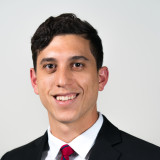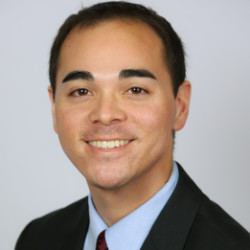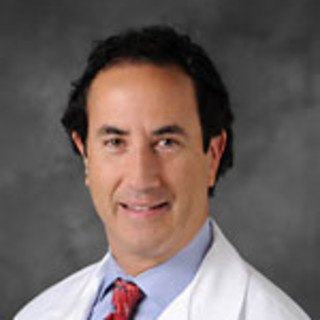Artificial intelligence (AI) dominated the 2025 American Academy of Otolaryngology, Head and Neck Surgery, Annual Meeting as a present reality already transforming how we practice, teach, and think about otolaryngology. Three sessions captured both the immense potential and the sobering challenges ahead.
Building the Foundation
"Artificial Intelligence for the Otolaryngologist: Everything You Need to Know... and Worry About" delivered exactly what its title promised. Led by Dr. Habib G. Zalzal and Dr. Rahul Shah, Executive Vice President and CEO of the AAO-HNSF, the session explored essential concepts from augmented intelligence to algorithmic bias, from human oversight requirements to the persistent problems of black box decision-making.
The ethical dimension proved most compelling. The speakers discussed a digital Hippocratic oath that would ensure AI tools prioritize patient welfare above all else. While they presented impressive data on AI's performance on medical examinations, they issued a crucial caveat: strong test scores do not guarantee better patient outcomes. Our field still lacks sufficient clinically based evidence that AI improves real-world results beyond administrative efficiency or educational metrics.
The session covered innovative applications in resident education, including work by Xiao et al. on objective performance feedback. The speakers always returned to the same point: we need rigorous clinical studies. They also raised thought-provoking questions about AI in peer review and its impact on copyright and academic integrity. One highlight of this presentation was the intervention of the AMA's president-elect, otolaryngologist Dr. Willie Underwood III, who spoke to the tremendous impact of AI now in his own private practice.
Getting Practical
Dr. Nancy Jiang from Stanford delivered "Forget Theory! Practical Applications of AI to Make Life Easier," which cut through the hype with refreshing directness. She warned attendees about AI courses that become outdated almost immediately, given the fast growth of the field. Prompt engineering, once touted as a critical new skill, has already proven less essential than initially claimed.
Dr. Jiang taught prompt engineering basics while demonstrating real applications. She showed how to analyze quality improvement data, using surgical site infection reports from California hospitals as an example. Her presentation positioned LLMs as research copilots that can accelerate data analysis and literature review. The focus stayed firmly on personal use cases that individual clinicians can implement immediately without institutional support or significant investment.
Transforming Education
"Alexa, Teach Me Surgery: How Generative AI Is Reshaping Otolaryngology Education," moderated by Dr. Alexander Rivero, showcased educational innovation in action. Dr. Brian C. Lobo presented AI agents that autonomously complete tasks rather than just answering questions. Dr. Megan L. Durr discussed how augmented reality integrates with AI, highlighting impressive work from Dr. Brad Strong and his team at UC Davis. Their platform allows residents to practice intricate surgical procedures with intelligent, real-time adaptive feedback. This fundamentally changes surgical education because residents now get continuous, personalized instruction instead of relying on static models and occasional supervision.
Dr. Matthew Shew mentioned the significant token costs of closed LLM systems, which are most likely needed to ensure proper privacy and appropriate patient data utilization.
The Road Ahead
Administrative applications emerged as AI's most validated use case. Documentation, scheduling, and prior authorization automation may lack the glamour of surgical robotics, but these tools directly combat physician burnout by reclaiming time for patient care.
This conference stood apart not just for the volume of AI content but for its maturity. Presenters acknowledged failures, demanded evidence, and emphasized validation over hype. The conversation evolved from speculation to implementation, from possibility to proof.
AI integration is not optional for modern otolaryngology. We must deploy these tools thoughtfully, study their impact rigorously, and ensure they advance patient care rather than simply dazzle with technological sophistication. The future is here. The question is whether we will shape it wisely.
Dr. Eshraghi has no conflicts of interest to report.
Illustration by Diana Connolly






